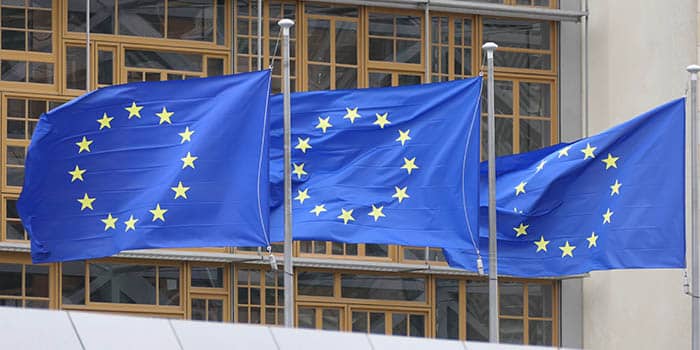- Casino
- By State
- Alabama
- Alaska
- Arizona
- Arkansas
- California
- Colorado
- Connecticut
- Delaware
- Georgia
- Florida
- Hawaii
- Idaho
- Illinois
- Indiana
- Iowa
- Kansas
- Kentucky
- Louisiana
- Maine
- Massachusetts
- Maryland
- Michigan
- Minnesota
- Mississippi
- Missouri
- Montana
- Nebraska
- Nevada
- New Hampshire
- New Jersey
- New Mexico
- New York
- North Carolina
- North Dakota
- Ohio
- Oklahoma
- Oregon
- Pennsylvania
- Rhode Island
- South Carolina
- South Dakota
- Tennessee
- Texas
- Utah
- Vermont
- Virginia
- Washington
- West Virginia
- Wisconsin
- Wyoming
- By State
- Slots
- Poker
- Sports
- Esports
KSA Suggests Course-Correction for Government in Rolling in Gambling

As gambling in the Netherlands is about to launch, the country’s gaming regulator, the KSA, has discussed what it considers failures and risks for consumers.
KSA Reprimands Lack of Flexible Self-Exclusion Methods
The Dutch gaming regulator, the Kansspelautoriteit (KSA), has criticized the national government for failing to introduce a short-term self-exclusion period as one of the measures designed to protect players from gambling harm.
According to a report released by the regulator, there have been both inefficiencies as well as market failures within the gambling sector, too.
One of the divisive issues is the ability to self-exclude and specifically the terms of the self-exclusion scheme. Presently, the Centraal Register Uitsluiting Kansspelen (Cruks), i.e. the self-exclusion scheme, allows players to exclude themselves for no less than six months.
The KSA has criticized the proposal, arguing that it would lead to a higher incidence of addiction or perhaps push vulnerable individuals offshore. Instead, the KSA argued, people should be allowed to self-exclude for periods of 24 hours, also known as cool-down periods, allowing players to have more control and address the issue at hand.
While the KSA has been a hardliner against the gambling industry, the regulator has argued that the government’s plan to ban the industry outright has not been a success. The watchdog also criticized a proposed tax on winnings, which would levy people differently.
The KSA has objected, arguing that the number of at-risk and problem gamblers was too small to justify a blanket measure like that for everyone who participates in online gambling.
So, no, the KSA said, the tax would not lead to “socially efficient transactions.” In fact, players may become discouraged to participate and seek unhealthy alternatives.
Lobbyist Efforts Should Be Controlled
Another point brought up by the KSA is the concern that market operators are far more informed about the current legal framework, giving them the ability to lobby and insist on legislation that favors them specifically.
The KSA went further to outline specific failures as per vertical. Lotteries, for example have been described as low-risk games, but there is a risk in say, jackpot or main prizes games. The availability of such games has increased exponentially.
Far more importantly, the government would need to implement regulations that are focused at transparency and combating misleading advertisement messages. Some specific changes would need to be enacted, the KSA thinks, to establish a framework that is “future proof” and allows the Dutch lottery sector to operate unperturbed.
Sports betting would probably benefit from a special levy that helps charities, but the choice whether such a measure should be introduced lies with politicians. For casino games, the KSA pointed out that the level of addiction is the highest, but then again, the segment accounts for the biggest chunk of the revenue.
The KSA pointed out that the availability of thousands of casino games made it very easy for individuals to succumb to unhealthy gambling patterns. Problem and at-risk gamblers were most numerous in the casino segment, the watchdog concluded.
Related Topics:
Mike made his mark on the industry at a young age, consulting for companies that would later become regulators. As one of the lead editor of Gambling News, he dedicates his weekdays to this project, aiming to educate the masses on the latest developments in the gambling circuit. His expertise and passion for the industry make him an invaluable asset to our team.
Must Read
Legal
July 10, 2025
Italian Court Clears Betsolution Ltd of Mafia Links















